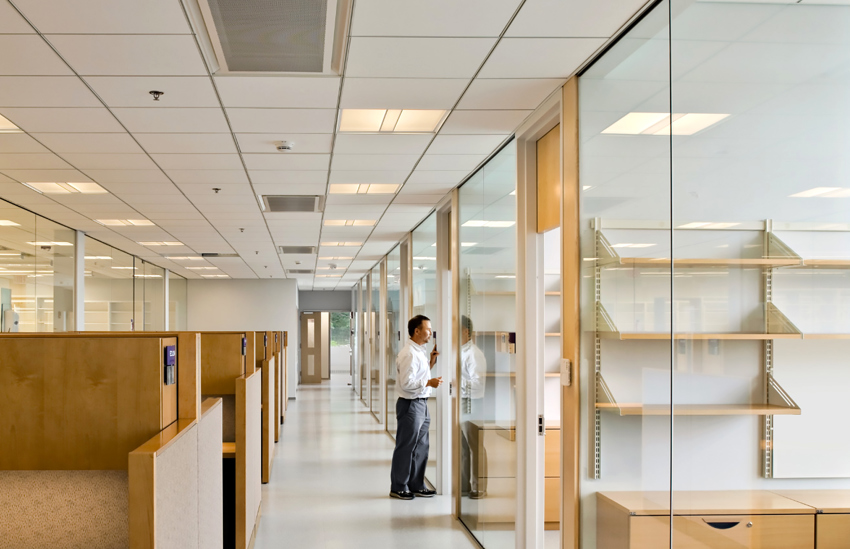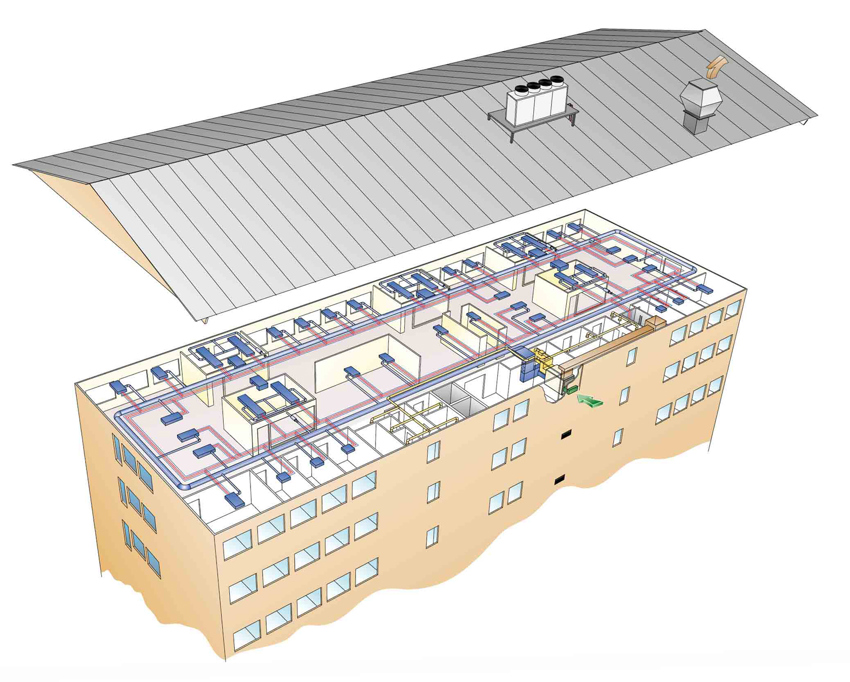
More efficient solution at a lower cost
AstraZeneca, Waltham, Massachusetts
When AstraZeneca extended its administration and research facilities in Waltham, Massachusetts, ventilation systems were required for both the administrative buildings and the research and development laboratories.
From chilled beams to comfort modules
AstraZeneca had previous experience of chilled beams. It was now interested in four-way air distribution, a technology that was not widely used in the USA at that time. Four-way offered the potential to reduce costs by having fewer beams, achieve a higher cooling output from more compact ceiling-mounted units, and also include some of the facility’s laboratory areas.
PARASOL provided major advantages
PARASOL would make it possible to increase the area for air exchange significantly without having to use additional ceiling space for the system. The modules provided superior air flow volume and adjustability, it was easier to adapt them to different office layouts when carrying out conversions or refurbishments, and the number of cooling flows could be reduced, including the number of control valves and piping connections. This all added up to a solution that was more cost-effective than regular chilled beams.
The lower air flow velocity resulted in less noise and improved acoustics. The compact and aesthetically pleasing modules were extremely reliable and had no moving parts, which minimised the need for regular maintenance.

20% savings and better utilisation of space
Estimated cost savings of 20% compared with other options. Moreover, the PARASOL modules provide optimised, balanced air flows compared with traditional ventilation systems, making it possible to increase office room occupancy from one to two persons, on average, if the need arises.
Incoming air is filtered three times before entering the buildings. A central cooling system supplies all the buildings with water at a temperature between 11°C and 15°C (according to the season). A temperature-controlled mixing station on the top floor of each building keeps the water in a supply loop slightly above 15°C, making condensate drainage in the cooling flows unnecessary.
Supplied primary air is cooled and mixed with the recirculated air flows before entering the loop sections. The primary air pressurises the office spaces above the connecting laboratories and is transferred via grills above the ceiling and into the laboratories like incoming air, which achieves further energy savings.
